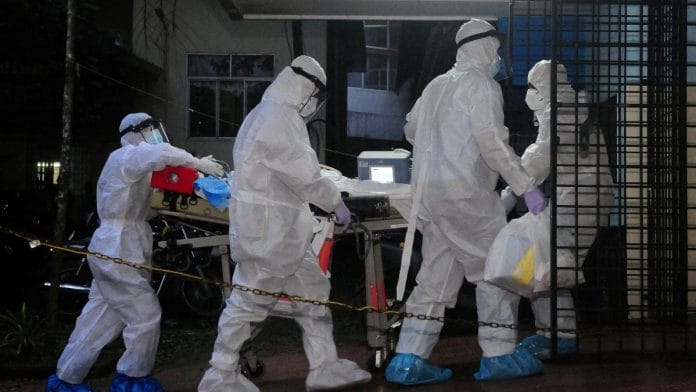Kochi: A 24-year-old student has died from the Nipah virus in the southern Indian state of Kerala, a local medical official said on Monday, and 151 people who came into contact with the victim are under observation to prevent the spread of the deadly virus.
This is the second death caused by Nipah in Kerala since July. Nipah is classified as a priority pathogen by the World Health Organization (WHO) because of its potential to trigger an epidemic. There is no vaccine to prevent infection and no treatment to cure it.
Parts of Kerala are among those most at risk globally for outbreaks of the virus, a Reuters investigation showed last year. Nipah, which comes from fruit bats and animals such as pigs, can cause a lethal, brain-swelling fever in humans.
The student starting showing fever symptoms on Sept. 4 and died five days later, said R. Renuka, a district medical officer in the town of Malappuram, located in northern Kerala.
The testing of a blood sample from the victim sent to the National Institute of Virology in Pune confirmed a Nipah infection on Sept. 9, Renuka said.
Five other people who have developed primary symptoms of a Nipah infection have had blood samples drawn and they were sent for tests, she said, without saying if they were primary contacts of the dead person.
Nearly 151 people are being monitored for any symptoms after they were found to be on the primary contact list of the victim, who had come from Bengaluru, she said.
This is the second death from a Nipah infection in Malappuram this year after a 14-year-old boy succumbed in July.
Nipah has been linked to the deaths of dozens of people in Kerala since its first appearance in the state in 2018.
(Reporting by Jose Devasia in Kochi; Writing by Tanvi Mehta; Editing by Christian Schmollinger)
Disclaimer: This report is auto-generated from the Reuters news service. ThePrint holds no responsibility for its content.






